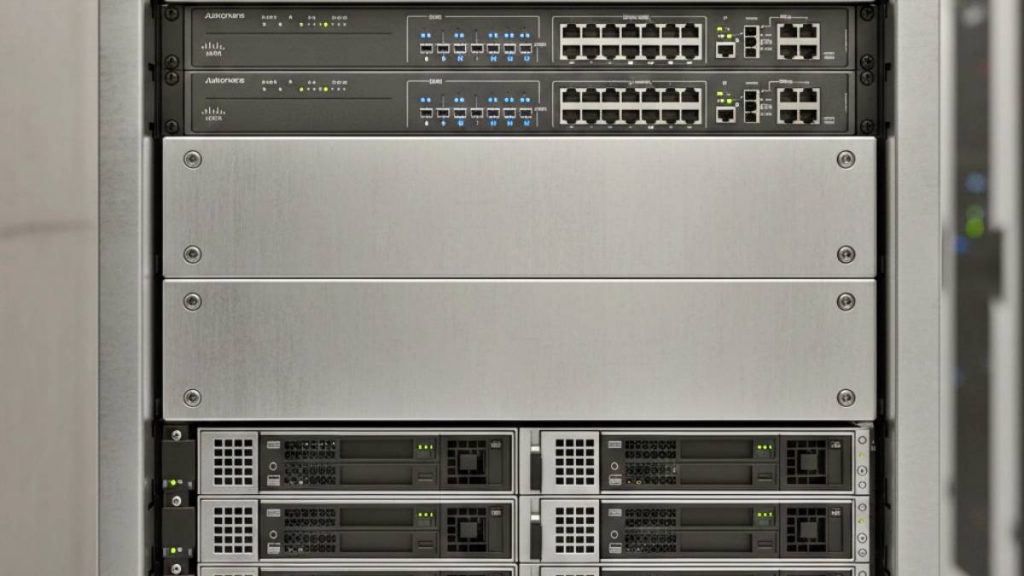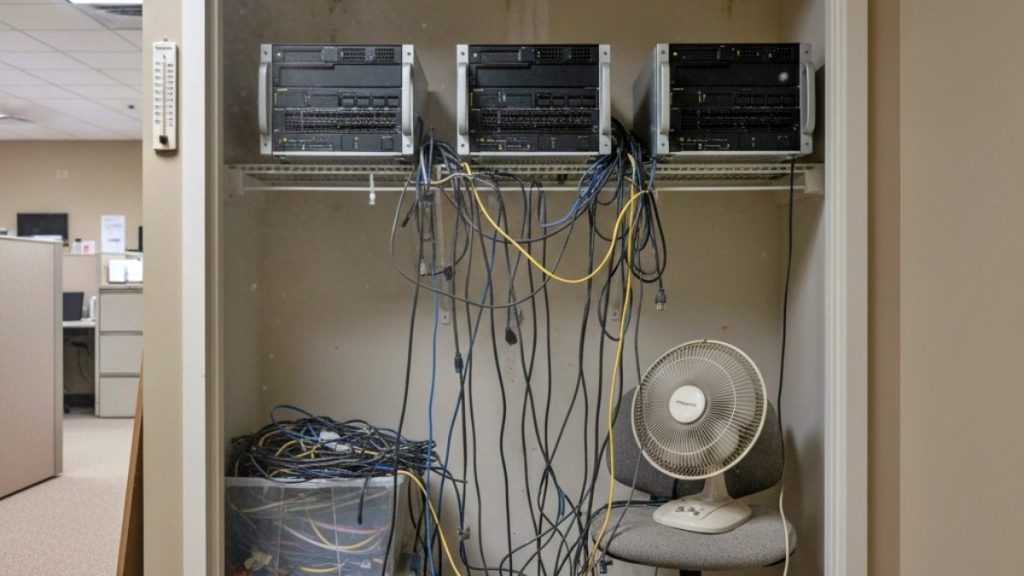Data centers face mounting pressure to comply with various regulations and standards in today’s fast-paced digital landscape. Adherence to compliance is not just a legal obligation; it safeguards sensitive information and upholds operational integrity. For IT managers, compliance officers, business owners, and data center operators, understanding these requirements is vital for maintaining trust and securing the organization’s reputation.

This article explores seven essential compliance standards that impact data center operations. From GDPR to PCI DSS, each standard addresses unique challenges inherent in managing data securely. By clarifying these requirements, we provide actionable insights that empower your organization to implement effective compliance strategies.
Understanding GDPR Compliance
The General Data Protection Regulation (GDPR) sets critical requirements for organizations that process the personal data of EU citizens. Key aspects include obtaining explicit consent from individuals before processing their data, ensuring the right to access and portability of this data, and maintaining the right to erasure, commonly referred to as the “right to be forgotten.” Furthermore, organizations must implement measures to protect data through encryption and pseudonymization. Non-compliance can lead to significant fines, making adherence an imperative.
Implementing these requirements fundamentally changes how data centers manage information. Companies must adopt stringent protocols regarding data handling and storage practices. For instance, a cloud service provider operating under GDPR must segregate client data based on consent levels and ensure it remains accessible only to authorized users. Additionally, they should establish clear processes for responding promptly to customer requests regarding their personal data rights. This secures compliance and builds trust with customers who recognize the organization’s commitment to data protection.
To achieve compliance within your data center:
- Conduct a comprehensive audit of your current policies and practices related to personal data management.
- Identify gaps in your existing framework concerning GDPR requirements and prioritize areas requiring enhancement.
- Develop robust documentation processes that detail how you collect, store, and use personal data while scheduling regular assessments to adapt as necessary based on new regulations or technological advancements.
Lastly, employee training is crucial in embedding an understanding of GDPR across all levels of your organization. Ensure staff are well-versed in principles associated with privacy rights and security measures tailored for protecting personal information. By fostering a culture of compliance, you will enhance organizational resilience against potential breaches and maintain operational integrity amidst evolving regulatory landscapes.
Navigating HIPAA Regulations
The Health Insurance Portability and Accountability Act (HIPAA) establishes crucial requirements for safeguarding sensitive health information. Any entity that manages protected health information (PHI), including data centers, must comply with HIPAA’s Privacy and Security Rules. The Privacy Rule sets standards for the protection of individual health information, while the Security Rule focuses on implementing appropriate safeguards to protect electronic PHI, or ePHI. Understanding these regulations is vital for maintaining trust with clients and avoiding potential penalties.
To effectively manage health-related data, data centers must establish necessary safeguards that align with HIPAA requirements. This includes administrative safeguards such as workforce training, technical safeguards like encryption of data at rest and in transit, and physical safeguards to restrict access to facilities housing sensitive data. A comprehensive risk assessment should be conducted regularly to identify vulnerabilities in systems handling ePHI. Implementing robust access controls ensures that only authorized personnel can view or alter sensitive patient information.
Developing compliance strategies tailored explicitly for healthcare data centers is essential for staying aligned with HIPAA regulations. First, a compliance officer should be designated to oversee adherence to these standards and coordinate training programs among staff members. Regularly update policies and protocols based on changes within the regulatory landscape or your organization’s operational framework. Additionally, regular audits and assessments should be conducted to validate that all procedures remain compliant and effective in mitigating risks associated with ePHI management.
Emphasizing a culture of compliance can further enhance your organization’s ability to navigate the complexities of HIPAA. Encourage open discussions about privacy concerns among employees, fostering an environment where everyone understands their role in protecting patient information. By prioritizing HIPAA compliance through well-defined practices and continuous monitoring efforts, your organization will strengthen its ability to safeguard health-related data effectively while minimizing exposure to potential liabilities.
ISO 27001: Information Security Standards
ISO 27001 certification is significant for data centers. It establishes a framework for an information security management system (ISMS), helping organizations safeguard sensitive data against threats. Achieving this certification demonstrates a commitment to protecting client information and enhances trust with stakeholders. Data centers that comply with ISO 27001 meet regulatory requirements and gain a competitive advantage as clients increasingly prioritize security in their vendor partnerships.
Key components of ISO 27001 include risk management and comprehensive information security policies. Effective risk management involves identifying potential vulnerabilities within the organization’s systems and processes, assessing these risks, and implementing appropriate controls. Additionally, developing robust information security policies ensures that staff understand their roles regarding data protection. For instance, employee training programs on secure access controls or regular audits can help maintain compliance and minimize the likelihood of breaches.
Adopting ISO 27001 standards yields numerous benefits for organizations. Beyond improving overall security posture, certified firms often experience increased operational efficiency through streamlined processes and reduced incident response times. For example, by following established protocols to manage threats more effectively, data centers can minimize service disruptions while maintaining high uptime. Furthermore, achieving ISO 27001 certification can lead to lower insurance premiums due to decreased risk exposure, ultimately contributing to cost savings.
By prioritizing ISO 27001 compliance as part of a broader strategy toward data center operations, organizations position themselves as secure environments for client data and as leaders in industry best practices. This proactive approach fosters accountability and promotes a culture centered around continuous improvement and vigilance against emerging cybersecurity threats.
PCI DSS: Payment Card Industry Data Security Standard
The Payment Card Industry Data Security Standard (PCI DSS) sets important security requirements for organizations that handle credit card transactions. Its primary objective is to protect cardholder data during and after financial transactions. To comply with PCI DSS, businesses must implement specific measures, including encryption of card information during transmission, maintaining a secure network environment, and employing strong access control measures.
To achieve compliance, organizations must establish essential security protocols. For instance, they should conduct regular vulnerability assessments to identify and remediate potential weaknesses in their systems. Additionally, maintaining an up-to-date inventory of assets helps to safeguard against unauthorized access. Implementing robust logging and monitoring solutions further enhances security by providing detailed records of transactions and system access.
Ongoing compliance with PCI DSS requires a commitment to continuous improvement in security practices. This can be accomplished through regular internal audits that assess adherence to the established standards. Training employees on payment processing protocols is vital in promoting a culture of security awareness within the organization. Regular updates on emerging cyber threats also help maintain readiness against evolving risks associated with financial data processing.
Adhering to PCI DSS is crucial for safeguarding sensitive payment information and maintaining customer trust. By actively implementing the necessary security measures and ensuring ongoing compliance efforts, data centers can effectively manage their risk exposure while successfully supporting financial operations.
NIST Framework for Improving Critical Infrastructure Cybersecurity
The NIST Framework for Improving Critical Infrastructure Cybersecurity serves as a comprehensive guideline for organizations looking to enhance their cybersecurity practices. Developed by the National Institute of Standards and Technology, this framework provides a flexible approach that adapts to any organization’s specific needs and risk tolerance. It comprises five core functions: Identify, Protect, Detect, Respond, and Recover. These functions work together to help data center operators establish a robust cybersecurity posture while meeting compliance obligations.
Implementing the NIST framework involves adopting recommended practices that allow organizations to identify vulnerabilities effectively and respond promptly to cyber threats. For instance, regular security assessments can pinpoint weaknesses in systems or processes before attackers exploit them. Furthermore, maintaining an incident response plan ensures your team is prepared to act swiftly when a breach occurs. Companies can also benefit from continuous monitoring solutions that provide real-time visibility into potential threats and enhance readiness against evolving challenges.
In addition to bolstering your cybersecurity measures, the NIST framework plays a significant role in achieving overall compliance across various regulatory environments. Organizations demonstrate diligence in safeguarding sensitive information by integrating frameworks like NIST into existing compliance strategies—such as GDPR or HIPAA. This proactive approach helps mitigate risks and builds trust with customers and partners who value security governance.
Adapting the NIST cybersecurity framework equips data centers with practical tools for navigating today’s complex threat landscape while supporting compliance efforts. As regulations continuously evolve alongside cyber threats, embracing these standards is essential for maintaining operational integrity and ensuring long-term resilience in your business operations.
Local vs Global Compliance Requirements
Navigating the complex landscape of compliance involves understanding both local regulations and international standards. Local rules, such as those imposed by state governments or specific regulatory bodies, can vary significantly from one jurisdiction to another. In contrast, international standards like the General Data Protection Regulation (GDPR) set uniform requirements that apply across multiple countries. This disparity creates a dual challenge for organizations operating in different regions. They must comply with diverse local laws while also aligning their practices with broader global standards.
Businesses often face unique challenges when they operate in multiple jurisdictions. A company headquartered in the United States might find its data handling subjected to stringent GDPR rules if it processes personal data from European customers. Conversely, it must adhere to California’s Consumer Privacy Act (CCPA), which has its own set of requirements. Companies may need to work on implementing policies that satisfy all applicable regulations without incurring unnecessary costs or straining resources.
Organizations should adopt a proactive approach to align operations effectively with varying compliance landscapes. Conducting comprehensive compliance audits is essential for identifying applicable regulations in each jurisdiction. This assessment should include an analysis of existing practices and risk assessments tailored to local and global standards. Investing in robust compliance management systems will help track evolving regulations and ensure ongoing adherence.
Training employees on compliance requirements relevant to their roles further strengthens operational integrity. Establishing centralized communication channels can facilitate sharing updates on changes in both local and international laws, promoting a unified approach throughout the organization. By creating adaptable strategies that consider regional nuances while maintaining consistency with global principles, businesses can navigate the complexities of compliance more effectively and sustainably.
Implementing a Compliance Culture in Your Organization
Establishing a compliance culture within your organization is essential to ensure that all employees understand and adhere to relevant standards. Training employees on compliance standards must be an ongoing commitment. Consider implementing comprehensive onboarding programs for new hires and regular refresher courses for existing staff. For instance, a leading data center operator successfully integrated mandatory workshops and simulations that allowed employees to practice handling sensitive data scenarios, reinforcing the importance of their roles in maintaining compliance.
Organizations must develop clear policies and procedures to support adherence to compliance standards. These documents should outline specific processes related to data handling, security protocols, and reporting mechanisms for incidents or breaches. A well-defined framework allows employees to understand their responsibilities clearly and reduces the likelihood of errors. A notable example can be seen in a financial services company that adopted an accessible internal knowledge base; this platform provided step-by-step guidelines for complying with PCI DSS requirements. As staff engaged with these resources regularly, they became more confident in their ability to maintain compliance effectively.
Continuous monitoring and evaluation processes are vital to sustain a culture of compliance. Regular audits of practices help identify gaps in adherence and opportunities for improvement. Key performance indicators (KPIs) enable organizations to measure how well teams follow set protocols. An IT firm that implemented bi-annual evaluations found that transparency about non-compliance issues fostered accountability among its teams. By sharing results openly and the success stories showcasing teams that excelled, they cultivated an environment focused on improvement rather than punishment.
A robust compliance culture equips organizations to meet regulatory demands and enhances overall operational integrity. By prioritizing training, developing solid policies, and establishing monitoring systems, you empower your team to effectively protect sensitive data while fulfilling legal obligations. This proactive approach minimizes risks associated with non-compliance while instilling confidence among clients and stakeholders alike.
Ensuring Compliance for Operational Success
Understanding and implementing essential compliance standards is critical for data centers. GDPR, HIPAA, ISO 27001, PCI DSS, and the NIST cybersecurity framework are the key standards impacting operations. Each standard requires specific actions to safeguard sensitive data and enhance an organization’s overall compliance posture.
Adherence to these regulations depends on maintaining operational integrity. Foster a culture of compliance within your organization by training employees and regularly evaluating policies. By prioritizing these standards, your data center can ensure regulatory adherence and build trust with clients and stakeholders.







